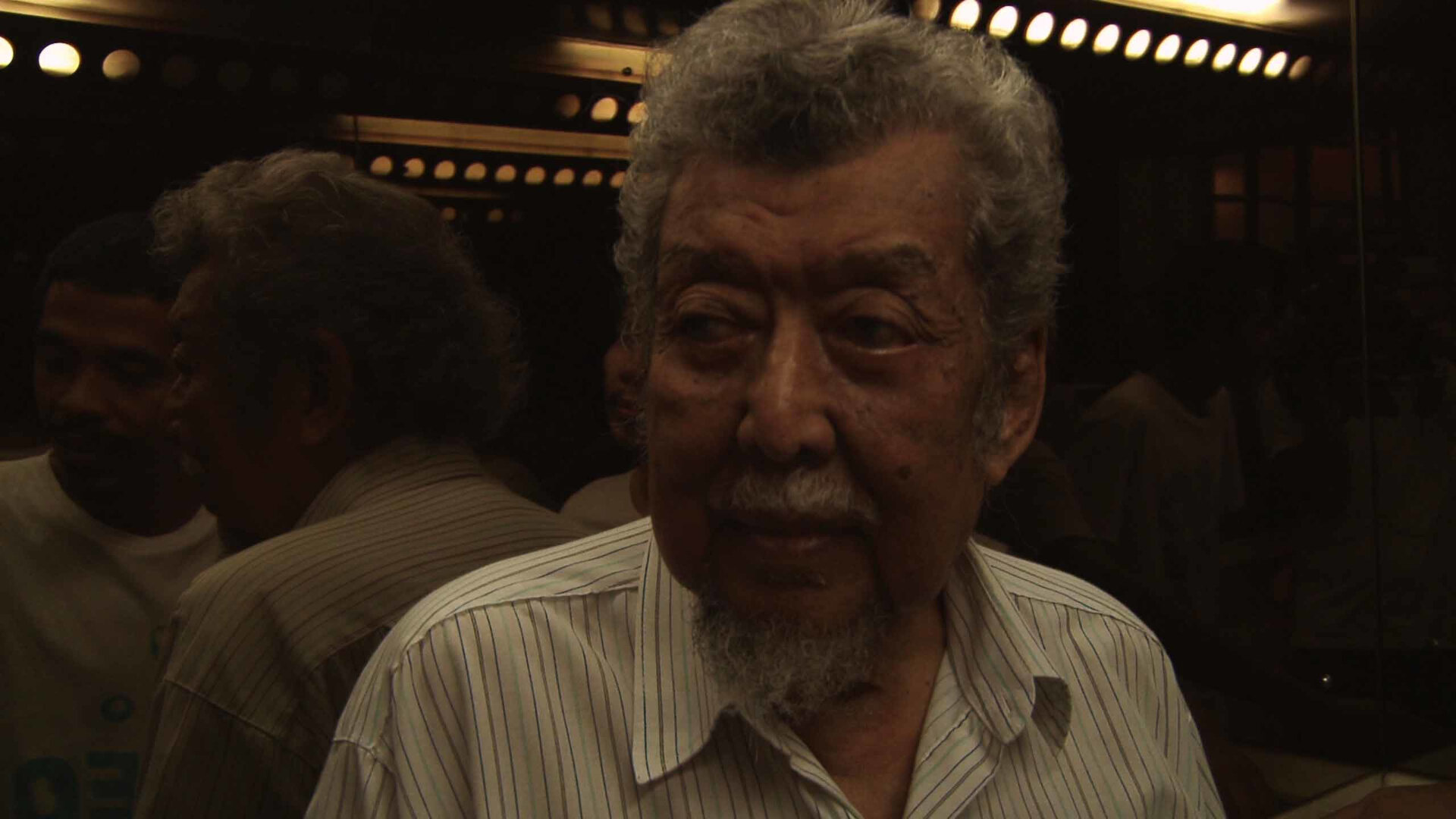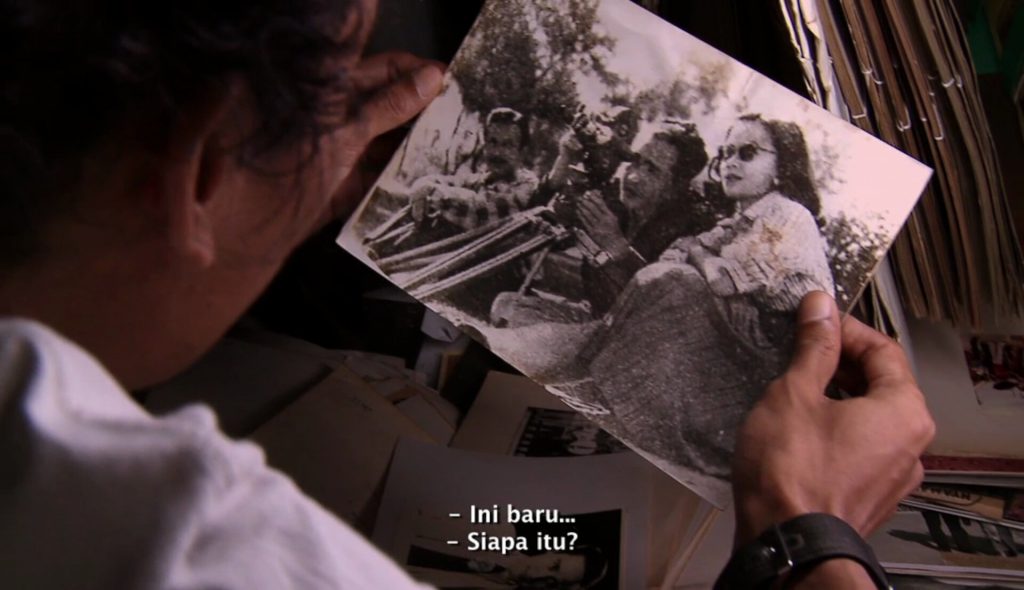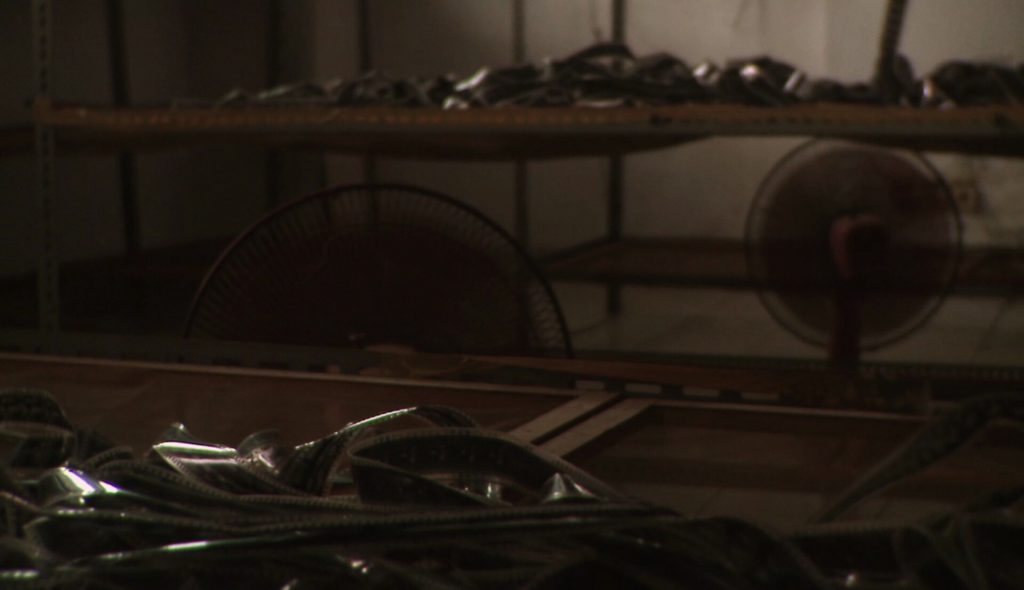The Meetings with The Archive
by Hafiz Rancajale
Translated by Yuki Aditya
Forum Lenteng is a collective based in Jakarta that promotes a socio-political discourse around cinema in Indonesia through screenings, education and film production. In 2013, to mark the 10th anniversary of the collective, Forum Lenteng released a documentary which aimed to promote a dialogue around the history of film in Indonesia. “Behind the Flickering Light: The Archive” (2013) centers a conversation between the members of the collective and Misbach Yusa Biran, founder of Sinematek Indonesia, the first and biggest film archive in Southeast Asia. This text from Hafiz Rancajale, who directed the film, describes the challenges and rewards of the production process.

Since the collective was founded in 2003, archiving and preservation has served as one of the main foundations of Forum Lenteng. By copying and screening materials related to the history of Indonesian cinema, Forum Lenteng has served as a distributor of archive film, helping this work reach other collectives and anyone who is enthusiastic about the history of cinema in this country.
It was on the basis of this principle that we came up with the idea of producing Behind the Flickering Light: The Archive. We invited archivist H. Misbach Yusa Biran to collaborate with us, in order to share his experiences and his knowledge with younger filmmakers. I do not want to explain my ideas about directing the film, or to invite the audience to “agree” with me about the aesthetic and language of the project. Instead, in this text I want to write a little more about my experience of working with Pak Misback and to capture our meetings.
Pak Misbach holds a special significance for Forum Lenteng. His dedication to film archiving in Indonesia has proved to be a great inspiration to us. Back in 2011, my colleague at the collective, Fuad Fauji, told me that he had recently met Pak Misbach, and that this legendary figure was ill at the time. Together, we decided to meet him and see if he would be open to making a documentary with us.
For my first meeting with Pak Misbach, I was accompanied by Fuad, and initially there was little conversation about filmmaking. When we finally asked if he would be interested in making a documentary with us, he initially objected saying “what do you want to say about me through film? Someone has made it already!” When we replied that the project would not only be about him, but also about the history of Indonesian film, he said nothing. At the end of the meeting, we exchanged contact details, but we did not have much hope.

Later that night, Pak Misbach texted me asking me to check my email. The next morning, I went to our office in a hurry to check my inbox and was surprised to discover that he had sent me a detailed plan on the making of the film, including a suggested title “My Journey to the Mosque.” He clearly had strong ideas about the making of the film, many of which went against those of the collective, so I replied carefully, wary of causing offense.
Over the next few days, we exchanged emails and cautiously decided to start production.
Surprisingly, Pak Misbach was very cooperative and the process ran very smoothly. He gave us freedom to record his activities and to make an appointment anytime, and he never mentioned the draft of the script he had sent us beforehand. Nevertheless, we were careful during the three-month shooting period, because Pak Misbach’s health was delicate and he often looked tired and complained about his illness. Despite this, he was eager to continue, constantly sending Faud messages asking when they were shooting next. In the meantime, we also began collecting archive footage and contacting potential interviewees.
In April 2012, we received news that Pak Misbach had been hospitalised, exactly two weeks after our last shoot with him at the Sinematek Indonesia. The last day we had seen him, Pak came to visit the headquarters of Forum Lenteng with us, something he had always said he wanted to do. Despite his worsening illness, he found time to send a message to Fuad about when they would resume production. We promised we would come to the hospital to visit, not intending to record but with a small camera to hand in case anything important happened. That day however, there was a thunderstorm and the visit was delayed. The next morning, on the 11th of April 2013, I received a message from a friend offering their condolences. Pak Misbach had died that night.
The news was a shock, and sent into disarray our plans for the production. We knew we would need to change the construction of the narrative completely, and we stepped away from it for a while to mourn. In early 2013, we began to look again at all the footage we had shot, and began a long editing process.

There is a lot I want to share in this text about what it was like to encounter the archive through this legendary figure. I had imagined that Pak Misbach would be stiff, formal and hard to speak to, while in fact I found him to be very humorous and open. Of course, we debated many things with him during the interview process and we had many differences, especially on sociopolitical issues. However, many of my colleagues from the collective, including myself, had shared his ideas on education and cultural matters. For Pak Misbach, cultural ideals could only be presented with knowledge and with historical consciousness of the culture itself.
When we finally finished making the film, we felt we had paid our debt to the archive, creating a record that could serve the preservation of Indonesian film history. We hope that this film will continue to inspire many people in the future.
Hafiz Rancajale (b. June 4th, 1971, in Pekanbaru) graduated from the Fine Arts Department at Jakarta Institute of Arts (IKJ) in 1994. He is an artist, curator and founder of Forum Lenteng. He is also an Editor-in-chief at www.jurnalfootage.net. From 2003 to 2011, he was the Artistic Director of OK. Video – Jakarta International Video Festival. Since 2013, Hafiz has been Artistic Director of ARKIPEL.